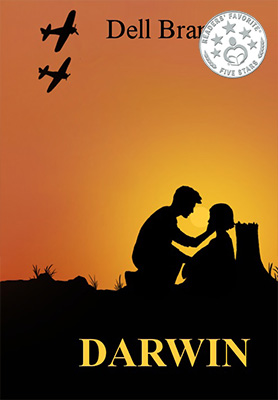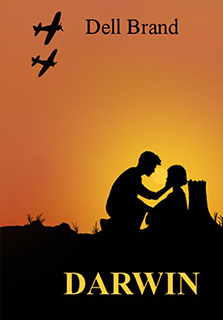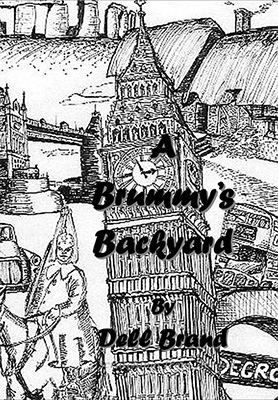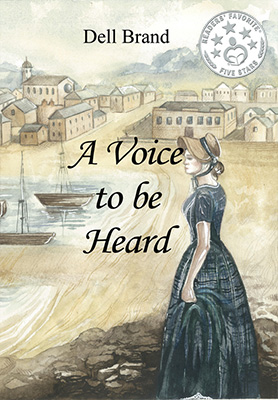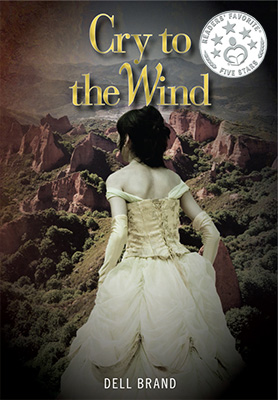darwin
Book Reviews
I thought it was the best of your writing I’ve read. Some fantastic descriptions and the character Boney came across beautifully.
Jane Rees
Overall Dell, my first impression on reading this chapter was that you really enjoyed writing it and it flowed so well, like you have your voice and your language just humming at the moment and you are seeing it all really clearly in your mind, a bit like Steve Smith is seeing the cricket ball.
Setting: so much clear detail and taking the reader into the horror of the battle field, including the travails with the technology of the time, and some insight into what was on the men’s minds as they performed their duties in this theatre of war.
Story: working in such a death stinking environment, there was always the threat that Boney would become consumed by it all, but we think-wish he is apart from it and doing okay, keeping himself safe, and then you push it deeper through his encounter with Ced, and the fact that his wife is pregnant and we just know him so much more.
Structure: with such a focus on Boney and his direct experience, the three-act structure of the chapter works okay, first his direct observation and experiences and then his catchup with Ced adds the new dimension, then the tragic final scene. Character Boney is the universal soldier, he is everyman, whose value and virtue never expires.
Voice: the narrator’s voice displays authority, clarity, compassion (to say ‘the awful truth’ tells us something about narrator and where the narrator thinks their reader is at).
Dialogue: works well.
Time: in this chapter it is straightforward.
Pat McGowan
Great read. Still enjoying it.
Lynette Kuskey
‘Darwin’ is a sprawling family saga set in the period of 1919 to 1974. As with all family sagas there is a whole catalogue of personal and family triumphs, tragedies and disasters for
the reader to ponder upon. We move from the introduction of a young, inexperienced and naturally nervous English bride who comes to an alien country in 1919 to a
massive natural disaster in the summer of 1974.
The cockpit for the bulk of the action is Darwin, the remote coastal capital of North Australia,
with equal attention paid to the Dalton family station called ‘Gracemere’ near the settlement of Pine Creek. Grace is the nervous young war bride of Charles Dalton who was wounded and recently demobbed after the end of World War I. Upon arrival in Adelaide, the
couple are promptly despatched by Charles’ imperious father to the station of ‘Gracemere’ in the Northern Territory to develop a cattle business. The family is already prosperous from an extensive sheep farming property in South Australia.
This is the beginning of the family saga, seen and recounted through the eyes of the major players involved. At all times the narrative is a first person account. Over the prolonged time span new family members are introduced and become involved including native people of the local Larrakia mob in Darwin. We learn of their attitudes and beliefs through the eyes of Jenny, a young serving girl at ‘Gracemere’ and, subsequently, through her two children, Rosie and Billy. It is through them, and through their perspective, we learn much about the brutality, casual racism and bigotry that the native peoples experienced at the hands of white Australians and the White Australia Policy.
Others introduced to the family group over the years include Eddie Wong, a Chinese, whose family settled in the Chinese community of Darwin and the Dutch Indonesian-born pilot
Henrik Bakker and his sister, Adriana, who was a victim of the Japanese internment camps in Java during World War II. These three, like Jenny and her children, come to play prominent roles in the family history. It is they, these outsiders to the Dalton family, who provide the reader with sharp insights into the Australian way of life and the attitudes and behaviour of those times. Their sharp, often critical, statements of what they experience and observe
are one of the principal themes of this book. They elevate ‘Darwin’ above a mere family history packed with anecdotes and events.
It is not the role of this review to simply narrate the history of the Dalton family, an account of what happened to whom, or when, for this is not the objective. This review reveals this book as a packed narrative with instances of racial bigotry, opinions and actions which far transcend mere ‘snobbishness’. To cite one example, Charles Dalton seeks some much needed advice on provisioning for a buffalo and crocodile hunting expedition. He is told by an old hand: ”the blacks set great store in white man’s medicine. Don’t let them near the cough medicine” , and again, ”Best let them have it [alcohol] all in one go, for they won’t work until it’s all gone.”
After the birth of a daughter, Daisy, and a son, Jack, to Grace and Charles Dalton, the couple slowly drift apart. Grace is increasingly unhappy with the isolation she experiences on ‘Gracemere’ and elects to move back to the relative security of Darwin, where she is befriended and begins to make her own life. Charles, for his part, is more involved in his attempts to make a success of the difficult business of cattle breeding and transporting and of buffalo and crocodile hunting for their skins. This means he is often away for long periods of time.
With Grace beginning to make her own life in Darwin, he takes the young serving girl Jenny as a mistress, and she bears him two children, Billy and Rosie. It is through their eyes we learn more about the extent of prevailing attitudes. Daisy and Jack remain unfriendly and disapproving, to say the least, of their half siblings throughout the narrative. On the family station of ‘Gracemere’, Jack is harsh and bullying to Billy while Daisy finds ”the dusky smell of the natives repugnant.” Far worse than this, worse by far, is she speaks of her half-sister Rosie’s rape in these terms: ”Her friends say she’d been raped, but you never know with these half castes. Mostly they ask for it in my opinion.”
The admirable and hard-working Eddie Wong, who is severely injured in the Japanese air raids on Darwin in February 1942 [where, on one particular occasion, there were over
two hundred deaths and considerable devastation caused], and nursed by war-time nurse, Daisy, is often himself on the receiving end of this racial prejudice throughout the narrative.
The narrative proceeds through the War years and into peacetime. Henrik and his sister Adriana play a greater role in the family fortunes, in all the triumphs and disasters, as they become increasingly involved and linked. There are marriages and break ups and reconciliations and the arrival of grandchildren for Charles Dalton. He had been severely injured in a hunt for buffalo earlier and, as he ages, his sons take on an increasing role in the family estate and the various ventures into hunting and tourism.
In Adelaide, his own parents are elderly and ailing and need care and attention. Daisy helps as often as she is able, given the vast distances involved, as her own mother, Grace, had done before her. Both Henrik and Jack experience difficulties in their own romances.
It is hard, in truth, to find anything to like in Daisy and Jack, but they, like their father, are very much people of their time and place. This basic fact needs to be borne in mind at all times.
Daisy’s own marriage with Henrik ends in breakdown and her emotional life takes a new and suddenly different direction. Jack’s own wooing of Adriana, seriously damaged by her wartime experiences and hampered by his attitudes, also ends in failure and her relationship with her long-time admirer and supporter in hard times, Eddie, takes on new meaning and significance.
At all times throughout the book, the reader is reminded constantly of Dell Brand’s perceptive and telling eye for social history as it evolves in this time and place and, always, a reminder – especially for the non-Australian reader – of the sheer vastness of Australia, and the almost inconceivable difficulties in travelling from one place to another across extremely rugged and harsh terrain. We are not allowed at any moment to ignore this basic fact or the consequent effects of this on the insularity and prejudices of many of the key characters.
Landscapes and locations are penned vividly, with great clarity and an artist’s eye as is the growth of Darwin and the many changes that occurred during this time span.
Events are brought within living memory by the events of the Australian summer of 1974 and the devastation of Cyclone Tracy, which brought death to seventy-one people and great destruction. After the event, over seventy per cent of Darwin’s population was evacuated. This, too, was to have profound effects upon the Dalton family.
This is a story of human frailty and redemption, a struggle to right the many wrongs and sins seen and condoned in a lifetime. Dell Brand is to be congratulated for her vivid narration of a family, at once both ordinary and extraordinary.
‘Darwin’ by Dell Brand has earned a four star rating by The Historical Fiction Company.
‘Darwin’ is a sprawling family saga set in the period of 1919 to 1974. As with all family sagas there is a whole catalogue of personal and family triumphs, tragedies and disasters for
the reader to ponder upon. We move from the introduction of a young, inexperienced and naturally nervous English bride who comes to an alien country in 1919 to a
massive natural disaster in the summer of 1974.
The cockpit for the bulk of the action is Darwin, the remote coastal capital of North Australia,
with equal attention paid to the Dalton family station called ‘Gracemere’ near the settlement of Pine Creek. Grace is the nervous young war bride of Charles Dalton who was wounded and recently demobbed after the end of World War I. Upon arrival in Adelaide, the
couple are promptly despatched by Charles’ imperious father to the station of ‘Gracemere’ in the Northern Territory to develop a cattle business. The family is already prosperous from an extensive sheep farming property in South Australia.
This is the beginning of the family saga, seen and recounted through the eyes of the major players involved. At all times the narrative is a first person account. Over the prolonged time span new family members are introduced and become involved including native people of the local Larrakia mob in Darwin. We learn of their attitudes and beliefs through the eyes of Jenny, a young serving girl at ‘Gracemere’ and, subsequently, through her two children, Rosie and Billy. It is through them, and through their perspective, we learn much about the brutality, casual racism and bigotry that the native peoples experienced at the hands of white Australians and the White Australia Policy.
Others introduced to the family group over the years include Eddie Wong, a Chinese, whose family settled in the Chinese community of Darwin and the Dutch Indonesian-born pilot
Henrik Bakker and his sister, Adriana, who was a victim of the Japanese internment camps in Java during World War II. These three, like Jenny and her children, come to play prominent roles in the family history. It is they, these outsiders to the Dalton family, who provide the reader with sharp insights into the Australian way of life and the attitudes and behaviour of those times. Their sharp, often critical, statements of what they experience and observe
are one of the principal themes of this book. They elevate ‘Darwin’ above a mere family history packed with anecdotes and events.
It is not the role of this review to simply narrate the history of the Dalton family, an account of what happened to whom, or when, for this is not the objective. This review reveals this book as a packed narrative with instances of racial bigotry, opinions and actions which far transcend mere ‘snobbishness’. To cite one example, Charles Dalton seeks some much needed advice on provisioning for a buffalo and crocodile hunting expedition. He is told by an old hand: ”the blacks set great store in white man’s medicine. Don’t let them near the cough medicine” , and again, ”Best let them have it [alcohol] all in one go, for they won’t work until it’s all gone.”
After the birth of a daughter, Daisy, and a son, Jack, to Grace and Charles Dalton, the couple slowly drift apart. Grace is increasingly unhappy with the isolation she experiences on ‘Gracemere’ and elects to move back to the relative security of Darwin, where she is befriended and begins to make her own life. Charles, for his part, is more involved in his attempts to make a success of the difficult business of cattle breeding and transporting and of buffalo and crocodile hunting for their skins. This means he is often away for long periods of time.
With Grace beginning to make her own life in Darwin, he takes the young serving girl Jenny as a mistress, and she bears him two children, Billy and Rosie. It is through their eyes we learn more about the extent of prevailing attitudes. Daisy and Jack remain unfriendly and disapproving, to say the least, of their half siblings throughout the narrative. On the family station of ‘Gracemere’, Jack is harsh and bullying to Billy while Daisy finds ”the dusky smell of the natives repugnant.” Far worse than this, worse by far, is she speaks of her half-sister Rosie’s rape in these terms: ”Her friends say she’d been raped, but you never know with these half castes. Mostly they ask for it in my opinion.”
The admirable and hard-working Eddie Wong, who is severely injured in the Japanese air raids on Darwin in February 1942 [where, on one particular occasion, there were over
two hundred deaths and considerable devastation caused], and nursed by war-time nurse, Daisy, is often himself on the receiving end of this racial prejudice throughout the narrative.
The narrative proceeds through the War years and into peacetime. Henrik and his sister Adriana play a greater role in the family fortunes, in all the triumphs and disasters, as they become increasingly involved and linked. There are marriages and break ups and reconciliations and the arrival of grandchildren for Charles Dalton. He had been severely injured in a hunt for buffalo earlier and, as he ages, his sons take on an increasing role in the family estate and the various ventures into hunting and tourism.
In Adelaide, his own parents are elderly and ailing and need care and attention. Daisy helps as often as she is able, given the vast distances involved, as her own mother, Grace, had done before her. Both Henrik and Jack experience difficulties in their own romances.
It is hard, in truth, to find anything to like in Daisy and Jack, but they, like their father, are very much people of their time and place. This basic fact needs to be borne in mind at all times.
Daisy’s own marriage with Henrik ends in breakdown and her emotional life takes a new and suddenly different direction. Jack’s own wooing of Adriana, seriously damaged by her wartime experiences and hampered by his attitudes, also ends in failure and her relationship with her long-time admirer and supporter in hard times, Eddie, takes on new meaning and significance.
At all times throughout the book, the reader is reminded constantly of Dell Brand’s perceptive and telling eye for social history as it evolves in this time and place and, always, a reminder – especially for the non-Australian reader – of the sheer vastness of Australia, and the almost inconceivable difficulties in travelling from one place to another across extremely rugged and harsh terrain. We are not allowed at any moment to ignore this basic fact or the consequent effects of this on the insularity and prejudices of many of the key characters.
Landscapes and locations are penned vividly, with great clarity and an artist’s eye as is the growth of Darwin and the many changes that occurred during this time span.
Events are brought within living memory by the events of the Australian summer of 1974 and the devastation of Cyclone Tracy, which brought death to seventy-one people and great destruction. After the event, over seventy per cent of Darwin’s population was evacuated. This, too, was to have profound effects upon the Dalton family.
This is a story of human frailty and redemption, a struggle to right the many wrongs and sins seen and condoned in a lifetime. Dell Brand is to be congratulated for her vivid narration of a family, at once both ordinary and extraordinary.
The Historical Fiction Company.
It never ceases to amaze me that Australia had a White Australia Policy. Dell Brand mentions this issue in her latest novel ‘Darwin’ and, whilst you still come across the ‘white Australia’ mentality today, it is quite shocking.
‘Darwin’ reaches across five and a half decades of the city of Darwin and the Top End’s history, moving through the aftereffects of the World Wars; the issues faced by migrants – English, Dutch and Chinese; the running of a cattle property; the start of the fishing and shooting tourism industry in the Top End; and the varied history and daily lives of characters in the book living through these decades.
We meet Grace Dalton who arrives in Darwin via Adelaide as a new bride and spends years isolated down near Pine Creek at the family’s cattle station. Her husband devotes himself to building the property and his diverse interests in the skinning, shooting and tours takes him away from home for lengthy periods of time. The marriage does not survive.
When the Daltons first arrive at Gracemere, we are introduced to the indigenous ‘mob’ who live on the property and the book gives a wonderful insight into how they were treated through the decades as they lived and worked on the station.
Whilst I enjoyed the book, I found that I knew many of the stories from different aspects and it seemed that every controversial issue that ever happened in Darwin was quickly covered in the story: racism, the stolen generation, the casual and shocking treatment of Aboriginal and half-caste people, the bombing of Darwin, the Chinese connection and, of course, the cyclone.
The book raced along and Dell’s writing painted a vivid picture of what was happening to everyone. Having lived in Darwin and knowing many of the events depicted allowed me to easily imagine what she was describing.
Darwin Book Club Member
5 Stars: A Panoramic Character-Driven Story Not to Be Missed
“Darwin” by Dell Brand is a searing historical family saga set from 1919 to 1974. The story begins with Grace, a young naive bride from England who comes to Australia to live with her husband, Charles Dalton. Dalton, who hailed from a prosperous family owning large sheep properties in South Australia, was a World War I veteran who returned home wounded. His haughty father soon sends Dalton and his young wife to the family’s isolated station in the Northern Territory south of Darwin to develop a cattle business.
Dalton, whose racial bigotry stands in the way of his success and that of his growing family, must learn to collaborate with those around him, including blacks and half-castes, to gain the assistance he needs to get things done. Over time, new family members and natives of Darwin are introduced into the family including Eddie Wong, a Chinese, and Henrick Bakker, a Dutch-Indonesian-born pilot. Written in the first-person narrative, the story is told through the different characters, giving a multi-faceted portrayal of the changing perspectives, attitudes and feelings over the years.
Author Dell Brand deftly handles complex themes such as racial prejudice and what it was like in Australia during the World War II years. Furthermore, the book sheds light on the effects of the White Australia Policy, enacted in 1901 and its eventual dismantling years later. Another catastrophe in the form of Cyclone Tracy has devastating effects on the Dalton family and on Australia as a country and this is adroitly featured in the text. These historical events provide a rich backdrop for the story as it unfolds. The author displays impressive skill in describing evocative landscapes and different terrains are brought to life through lyrical prose.
Needless to say, author Brand is a true entertainer at work. This book exquisitely highlights some of the foibles of humanity and the possible redemption of these frailties. One of the book’s strengths is the intensity, drama, and plausibility of the narrative, which further cements the reader’s interest in the fictional family’s journey. Indeed, “Darwin” is a beautifully-rendered, five-star narrative that provides insight into the complexities of family dynamics and is one not to be missed.
.
Lily Andrews for Reader Views

